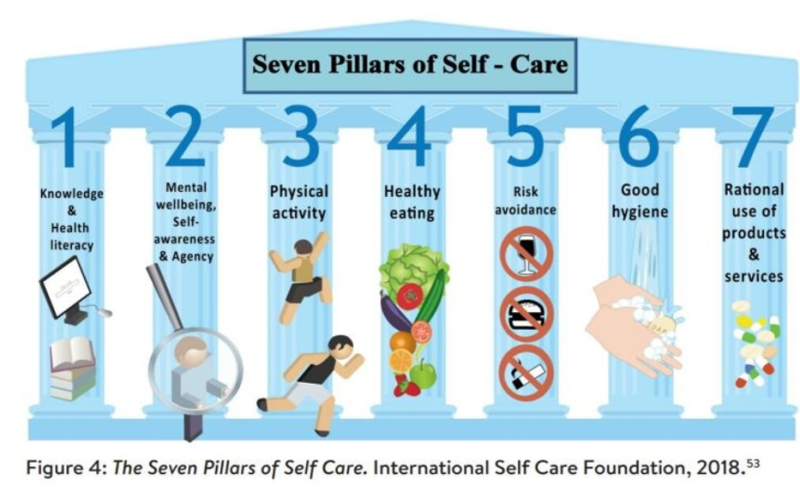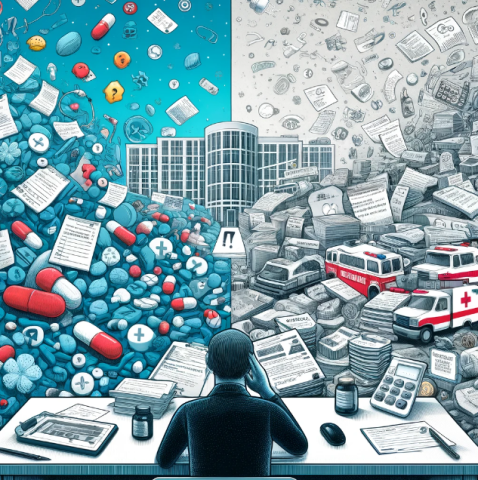
I was recently speaking at a conference on collaboration and change and used the Alvin Toffler quote “The illiterate of the 21st century will not be those who cannot read and write, but those who cannot learn, unlearn, and relearn”. Now whilst I do believe that we live in an ever-changing world, and the pace of change is increasing, it did send my mind thinking about the literal words of the quote. What does literacy mean in the 21st century, particularly health literacy?
The World Health Organisation defines health literacy as “..the personal characteristics and social resources needed for individuals and communities to access, understand, appraise and use information and services to make decisions about health.” Health literacy is also the 1st pillar of self-care.
Understanding Health Literacy
Health literacy is a two-sided issue, comprising both an individual’s ability to understand and use the information to make decisions about their health and care, and a ‘systems issue’, reflecting the complexity of health information and the health care system. The COVID-19 pandemic showed that even in developed countries, people’s understanding of how their bodies work, and where to go to for credible/reliable/honest information, is not available or understood by all. Remember US President Donald Trump suggesting research into whether the coronavirus might be treated by injecting disinfectant into the body?
Many of us in consumer health like to think we work in markets where health literacy is not an issue. However, the data says otherwise. 77 million American adults have basic or below basic literacy skills. In the UK 19.4% had some level of difficulty reading and understanding written health information, and 23.2% discussed health concerns with healthcare providers. In Thailand, most Thai people (58.9%) had a fair level of health literacy (HL), followed by high HL (24.3%) and low HL (16.8%). However, you cut it, around 20% of all your consumers have some problems.
Low Health Literacy Effects
At several pharmacy conferences I’ve spoken at, I’ve asked the question “If a label says ‘1 tablet to be taken 3 times a day’ what the interval is, in hours, between the doses? I get the answers 3, 6, and 8 hours. This is from a room full of pharmacists. The problem is, of course how you define a ‘ day’. Is it the working day (8 hours), the waking day (16-18 hours), or the 24-hour day. This might mean the patient is under, or overdosing
Low health literacy is associated with more hospitalizations, greater use of emergency care, decreased use of preventive services, poorer ability to interpret labels and health messages, poorer health status, higher mortality, and higher health care costs.
Think for a second of the blood, sweat, and tears your marketing and regulatory departments expend on ensuring that the box, the label, and patient leaflets, are useful for the intended audience. Have you ever bothered to read, the, often, tiny print, and obscure medical language? How far did you get?

Recent research by the Association of the European Self-care Industry (AESGP) has revealed that approximately three-quarters of respondents who have purchased non-prescription medicines report always or usually reading at least some of the information provided on the box/outer packaging (75%) or in the patient leaflet (75%). Sounds good, right? However, this still leaves about a quarter who don’t. Digging a little deeper reveals what they actually read.
More than eight in ten say they always or usually check information on how to take the medicine (85%) and what the medicine is used for (81%), while around six in ten say they always or usually do so for information about how to store the medicine (60%). Therefore, that’s 40% of consumers who may be storing their meds incorrectly. The bathroom cabinet, a regular storage facility in many homes, exposes meds to heat and moisture from the shower, bath, and sink, which may damage your meds and make them less potent, giving your consumers the impression they don’t work.
Thanks for reading (if you did), and if you’d like to know more about health literacy please get in touch

Senior Consultant at The Consumer Healthcare Training Academy